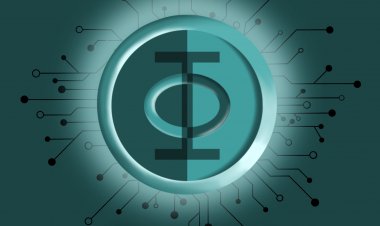Personal Finance Hackbook in 17 Topics for You
Saving money is crucial, especially when the economy is volatile. This page provides tips for saving money in all areas of life. If you want to save money, then these tips will help you do that.

1. Create a budget
There are too many people out there that have no idea where their money goes. If you're one of them, then you're just flushing your hard-earned money down the drain. Get a handle on your finances by creating a simple budget. It's easy. All you need is a notebook and a pen (nowadays you can do it on your computer as well). List all your incoming income, then list all your expenses. Check out budgetbakers.com for a free (online or downloadable) budget app called Wallet.
The key to a good budget is to spend less than you earn. Aim to put money into savings, so at the end of the month, you have something to show for it.
2. Get a side hustle
If you want to earn more money, then get a second job. I'm not talking about getting another job that requires you to wear a uniform and smile at idiotic customers all day (no offense to any retail or food service workers out there). I'm saying get a job that lets you create value. If you are an artist of any sort, offer to do art for people. If you write, do freelance writing. If you do web design or build furniture, offer your services to friends and family. Also, try to find side hustles that will save you from the constant work and spend paradox and earn regular passive income.
If you don't want to get a side hustle, but still want to earn extra money, sell stuff you don't use or need anymore on eBay or Amazon.
3. Buy things used
New things are rarely a good deal. We've been brainwashed to think they are. Check out Craigslist or just search for local yard sales in your area. You'll find that most "new" things you can buy used things for A LOT cheaper.
4. Avoid paying interest
If you have a credit card or other type of debt, avoid paying interest by making minimum payments. Instead, try to pay the balance in full as soon as you can. Even if you can't pay it all, every little bit helps. If you have a credit card with a high APR, lower it by calling the company or visiting their website and see if you can get a lower one. If you have a high limit, see if they'll lower your APR. If that doesn't work, get rid of the card because it's not worth it.
5. Buy quality items
The old saying "you get what you pay for" is usually true. Buying cheap shoes may save you money in the short term, but they won't last and you'll end up spending more money in the long term. Buy quality items and take care of them, and you'll save money in the long term.
For clothes, shoes, coats, etc., try looking into consignment or thrift stores. You may be surprised by what you can find!
Also, check out eBay for items you need. Check the product reviews to make sure you're getting a good product at a good price.
6. Sell your stuff
Instead of throwing away stuff you don't need or want anymore, sell it. Even if you sell it for a low price, you're getting something for it, which is better than just throwing it away.
If you have items that are in good condition and you don't want to bother selling them, consider donating them to a local charity or non-profit organization.
7. Cook at home
Restaurants may be a fun place to go once in a while, but they can drain your wallet. Eating out every day will kill your budget pretty quickly.
Make a meal plan and buy the ingredients at the grocery store. You can even save more by visiting discount grocery stores like Aldi or going with a "sale cycle". Every week, a different grocery store puts their marked-down items on sale. By going the week they have their sale, you can save a lot. Also, don't buy anything that's not on sale that week!
You can also save money by growing your food. Even just planting some vegetables in pots on your balcony, porch, or backyard can significantly cut down on your food bill. Some vegetables, like tomatoes and lettuce, can even be grown indoors. Just be sure to hydrate the soil well so they don't dry out.
8. Shop alone
Whenever you go shopping, don't take anyone with you. If you go with other people, the chances of you buying things you don't need or won't go up. This is especially true for your children. Don't take them with you unless they desperately need clothes or shoes.
If possible, shop early in the morning or late in the evening. Studies have shown that shoppers are more likely to spend more during in-day times and more likely to buy unnecessary items.
Stick to your shopping list and don't deviate from it. This will help you avoid buying anything you don't need or want.
Also, never shop when you're hungry or right after an argument. Both of those conditions make you more susceptible to spontaneous buying.
9. Use coupons
Luckily, more and more stores are accepting them now. Coupons can save you a few bucks here and there, but if you're looking to save, try gathering coupons for items you need like vegetables or breakfast cereal. You can also search online for coupon codes for popular websites like Amazon. Just be careful when using a coupon for something you've never bought before. Make sure it's a reputable brand and that other people have had success with the product.
Check out RetailMeNot.com for money-saving coupons and promo codes.
If you find a coupon you like, but it's only for the brand you don't like or it's for something you don't need, see if you can take it to a store and use it towards a different product. For example, if you have a coupon for peanut butter but you don't like peanut butter, take it to the store and try to use it for a different item. You'd be surprised how often you'll be able to get away with it.
10. Get a rewards credit card
If you pay off your entire credit card bill every month, a rewards credit card can be a great help in saving money.
Sign up for a credit card that has reward points that can be redeemed for cash. You'll want to pay off your bill in full every month so you don't incur any interest charges. If you're diligent about paying off your monthly credit card bill, you can reap the benefits of the rewards without spending any extra money.
Some credit cards give you reward points for every dollar you spend. Other cards give you a discount on certain types of purchases, like airline tickets or hotels. Others give you a certain amount of money just for signing up.
If you're not sure which credit card to get, ask friends and family for recommendations. Or, you can check websites like a list of the Amazon Top Ten Best Rewards Credit Cards.
Keep in mind that there's often a catch to these offers. Many of them have an annual fee that you'll have to pay every year. Also, many only offer rewards points on certain categories of items, like groceries or gas. If you don't pay off the bill every month, the interest alone could negate any reward you get in the mail.
Always read the terms and conditions for these cards before you apply.
11. Turn off the lights
This is more of a general money-saving tip, but it applies here too. Whenever you leave a room, be sure to turn off the lights. This sounds obvious, but according to the U.S. Department of Energy, most people forget to do it most of the time.
You'd be surprised how long your bills can stay low just by turning off the lights whenever you leave the room. You might think it won't have much of an effect, but remember that there are 365 days a year, and if you keep a light bulb off for 6 more hours each day, you can make a significant profit!
Try turning off the lights in rooms you don't use very often too, like your guest bedroom or your home office after work. It's free money!
12. Replace light bulbs with LEDs
If you're like most people, you still have some incandescent light bulbs in your home. While they might work fine, they use far more electricity than their newer LED (Light Emitting Diode) counterparts.
Think about it. How many hours does a standard light bulb last? A few hundred at most? An LED light bulb can last for years and years on end with the same amount of energy consumption. You can pick them up at your local hardware store or order them online.
If you want to take it one step further, consider switching your lights to solar-powered equivalents. You'll need to give the lights plenty of sunlight during the day for them to work at night, but if you position them correctly you could eliminate your power bill each month.
With newer technology coming out all the time, there's no telling how cheap and efficient these lights will be in another decade. And if their cost continues to decrease, they may replace current lighting options entirely.
If you're unsure about how efficient these lights are compared to the old ones, look for an Energy Star label when making your purchase. These products meet a certain standard of efficiency set by the U.S. government.
Learn more about saving money on lighting at Energy.gov
13. Install water purifiers on faucets
You wouldn't believe how much water you can save each year just by installing purifiers on your faucets. It might sound like overkill, but the cost savings will add up fast.
A simple device that fits over your faucet and filters out any impurities, they can eliminate the need to buy bottled water altogether. Most filters are extremely affordable and can last for years depending on your water quality.
The next time you're at the hardware store, pick one up and install it as soon as you get home. I think you'll be happy you did!
14. Check your address for free money
Did you know that the government gives away free money to people like you? They give away free money for education. They give away free money for healthcare. Heck, they even give away free money just for having a baby!
You just have to know where to look and have a valid Social Security number. If you meet those two requirements, you're already ahead of the game.
Take five minutes and see what you can find on Google. The government puts out free money every day. You might be surprised at how much you can receive just by filling out a form or two.
You might even find out that you're eligible for more than you thought!
15. Research health insurance options
Do you currently pay for your health insurance? If so, there's a good chance you're overpaying for it (like most people do).
Many employers automatically enroll their employees in a health insurance plan, even if it's one they would not otherwise choose. Luckily, you have the option to switch plans and oftentimes you'll be pleasantly surprised by the difference in price.
That money you'll save can go straight into your savings account!
If you don't have health insurance at all, you might be able to get it through the government. Each state has a health insurance exchange portal that you can use to find out what's available near you.
In most cases, you'll be eligible for Medicaid or other low-cost options. Remember, the government wants you to be healthy!
You can access your state's health exchange portal by googling a little.
16. Repurpose items you have around the house
If you're anything like me, you have a bunch of random stuff just lying around your place. Anything from old towels to empty cans can be used for something else.
You just have to think outside the box a little! I guarantee you have items in your home that are just collecting dust. You should take some time to go through everything you own and see if there's something you forgot about.
If you find something, think of a way that you can use it. If you can't think of anything, do some research online or ask friends if they have any ideas. Nine times out of ten, you'll be able to use it for something!
Maybe your old dresser drawers are falling apart. Why not take them apart and build a bookshelf with them? Or maybe you can turn an old shirt into a paint rag?
The possibilities are endless as long as you put your mind to them.
17. Learn the difference between wants and needs
Do you need that new video game? Of course, you do! You need something to occupy your time. But is it a want or a need?
If you think about it, there are not too many things in life we actually "need." Sure, we all need food, water, and shelter to survive, but what about those little joys in life? Those are what I call "wants."
You need food to survive. You want a pizza. The goal is to have enough money to buy what you need and want in life.
If you focus too much on the wants and not the needs, you'll never achieve long-term happiness or success.
Be honest with yourself about what's a want and what's a need. Do you need a video game or do you just want it? Let yourself spend less for wants and more for needs.
That's it!
Now you have the hackbook for your personal finance! Just try them, you will be surprised a lot!
Good luck!
In this article post, Gofth gofther Gofther examines the concepts of health insurance, rewards credit, items, credit, personal finance, coupon, lights and bill. Check out other recommended posts for more finance article content focused on personal finance.





























